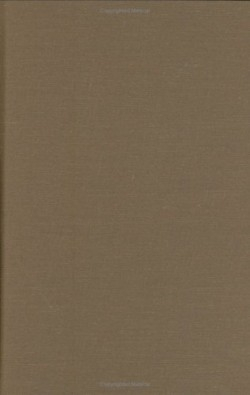
Hawthorne in His Own Time
A Biographical Chronicle of His Life, Drawn from Recollections, Interviews, and Memoirs of Family, Friends, and Associates
“We New Englanders,” Hawthorne remarked only partly in jest to Rebecca Harding Davis, “begin to enjoy ourselves—when we are dead.” Hawthorne’s death came prematurely in 1864, many speculated as a result of his grief over the war or perhaps the consequence of an overlong stay in Rome. Much like Thoreau’s early demise, Hawthorne’s rapid decline came as a “disappointment” to his Concord neighbor Emerson, who “thought him a greater man than any of his works betray, that there was still a great deal of work in him, & that he might one day show a purer power.”
Editors Bosco, a distinguished professor of English at SUNY-Albany, and Murphy, an associate professor of English at Schenectady Community College, have collected a fascinating body of documents in this book, including reflections by Emerson, Oliver Wendell Holmes, Hawthorne’s publisher James T. Fields, Bronson Alcott, Henry James, William Dean Howells, two of Hawthorne’s children, Rose and Julian, and many other pieces. The prevailing irony of Hawthorne in His Own Time is that these selections, meant to illuminate the author of some of American literature’s best known and widely read stories and novels, confirm the consensus that Hawthorne the man was inscrutable, or as his best friend in college, Jonathan Cilley, put it, “I love Hawthorne [;] I admire him; but I do not know him.” The portrait that emerges from these accounts is remarkably consistent. Hawthorne was shy, reserved, almost morbidly private. He found social situations excruciating, but as Julian Hawthorne remembered, “his presence was the finest conversation.” Physically Hawthorne was impressive, a “personage” as Howells called him, but one who Howells said “was always, more or less merging into the shadow.” Hawthorne was a crafty observer of the personalities of his friends for use in his art, much to Emerson’s dismay. A loving if eccentric father and a devoted husband, Hawthorne’s loyalty to his friend Franklin Pierce came with great privileges—the consulship of Liverpool and Manchester—and at great cost, the failure of his book Our Old Home that he dedicated to the unpopular ex-president.
The great subjects of Hawthorne’s art—the relationship between the inner and outer selves, the tragic solitude of human life, and the inescapable darkness in every heart—came directly from his own experience, so this book collectively argues. His eulogist, James Freeman Clarke, suggested that “[N]o other thinker … has had such sympathy as he had with that dark shadow which falls over our existence—that shadow which theologians call sin.” Hawthorne’s enduring appeal as a writer perhaps owes much to this understanding.
Frank Preston Stearns, a contemporary of Hawthorne’s children, wrote, “Imagine a man five times as sensitive as a young lady in her first season, with the will of a Titan, and a mind like a crown-glass mirror, and you have Nathaniel Hawthorne.” There he is indeed.
Disclosure: This article is not an endorsement, but a review. The publisher of this book provided free copies of the book to have their book reviewed by a professional reviewer. No fee was paid by the publisher for this review. Foreword Reviews only recommends books that we love. Foreword Magazine, Inc. is disclosing this in accordance with the Federal Trade Commission’s 16 CFR, Part 255.
